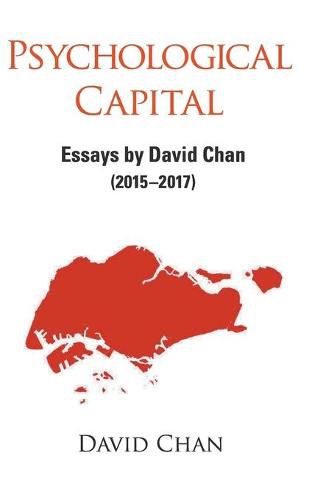Readings Newsletter
Become a Readings Member to make your shopping experience even easier.
Sign in or sign up for free!
You’re not far away from qualifying for FREE standard shipping within Australia
You’ve qualified for FREE standard shipping within Australia
The cart is loading…






This book is the second collection of twenty-one essays by behavioural scientist Professor David Chan. The essays in the book first appeared in The Straits Times from March 2015 to September 2017. They discuss a wide range of topics including the different types of commitment to country, diversity and cohesion, people-centric policies and unintended consequences in policymaking, futures thinking, maladaptive cynicism and healthy scepticism, ambivalence from mixed feelings, terrorism, the psychology of power, separating sincere apologies from insincere ones, the impact of socio-political humour, and finding one’s own meaning in life. A common theme that runs through these essays is developing ‘Psychological Capital’ to build a strong society of individuals and communities - one that is able to pursue positive things but also able to handle shocks, failures and unmet expectations. This book goes beyond examining critical issues that matter to people, policymaking and nation building, and why they do, to focus on translating the ‘knowing what’ and ‘knowing why’ to ‘knowing how’ and ‘knowing when’. Endorsed by fifty leaders from different sectors, this book provides a powerful springboard for self-reflections, internal and public discussions, and individual and collective actions.
$9.00 standard shipping within Australia
FREE standard shipping within Australia for orders over $100.00
Express & International shipping calculated at checkout
This book is the second collection of twenty-one essays by behavioural scientist Professor David Chan. The essays in the book first appeared in The Straits Times from March 2015 to September 2017. They discuss a wide range of topics including the different types of commitment to country, diversity and cohesion, people-centric policies and unintended consequences in policymaking, futures thinking, maladaptive cynicism and healthy scepticism, ambivalence from mixed feelings, terrorism, the psychology of power, separating sincere apologies from insincere ones, the impact of socio-political humour, and finding one’s own meaning in life. A common theme that runs through these essays is developing ‘Psychological Capital’ to build a strong society of individuals and communities - one that is able to pursue positive things but also able to handle shocks, failures and unmet expectations. This book goes beyond examining critical issues that matter to people, policymaking and nation building, and why they do, to focus on translating the ‘knowing what’ and ‘knowing why’ to ‘knowing how’ and ‘knowing when’. Endorsed by fifty leaders from different sectors, this book provides a powerful springboard for self-reflections, internal and public discussions, and individual and collective actions.